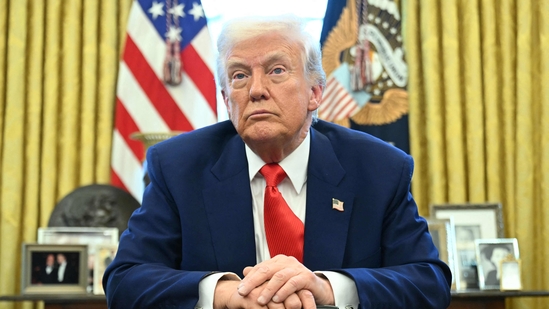The White House signaled Tuesday that it will soften tariffs on automakers, sparking optimism in Detroit where car makers await key details on President Trump’s fast-evolving policy.

White House officials declined early Tuesday to elaborate on the measure, which will be announced in parallel with a visit by President Trump later in the day to the Detroit area to celebrate his 100th day in office.
“The President will sign the executive order on auto tariffs later today,” Press Secretary Karoline Leavitt told reporters at a briefing.
Automakers have been among the hardest-hit sectors by Trump’s aggressive tariffs across industrial products.
Analysts have warned that the myriad levies could result in higher prices, denting US car sales and threatening jobs.
But the Trump administration has argued that tariffs provide a necessary incentive to push the industry to build more autos in the United States.
Besides a 25 percent tariff on imported cars, automakers have also faced a 25 percent tariff on steel and aluminum and face a new levy on foreign auto parts expected to take effect on May 3.
Roughly half the cars sold in the United States are assembled within the country, with another 25 percent coming from Mexico and Canada and the remainder from a broader swath of nations including Germany, Japan and South Korea.
Also read | Trump 100 days report card: Poll of polls shows 42% approval amid tariff, immigration concerns
“I am not going to go into the details of the auto tariff relief, but I can tell you that it will go substantially towards reshoring American auto manufacturing and again the goal here is to bring back the high-quality industrial jobs to the US,” Treasury Secretary Scott Bessent said Tuesday.
US automakers were among the group most affected by the inclusion of Mexico and Canada as markets with the 25 percent levy. Detroit carmakers maintained investments in those markets after Trump renegotiated the North American Free Trade Agreement during his first term.
Automakers have already announced some investment decisions in light of the tariffs. But analysts have cautioned that Trump’s approach will not incentivize multi-billion dollar investments if the industry does not believe the tariffs will last throughout Trump’s administration and beyond.
General Motors said earlier this month that it plans to boost truck production at its plant in Fort Wayne, Indiana.
GM is looking at other actions “we could implement quickly, efficiently and with low near-term costs,” Chief Financial Officer Paul Jacobson said Monday.
Nissan, Honda and Volvo have been among the foreign automakers that have announced steps to boost investment in the United States.







